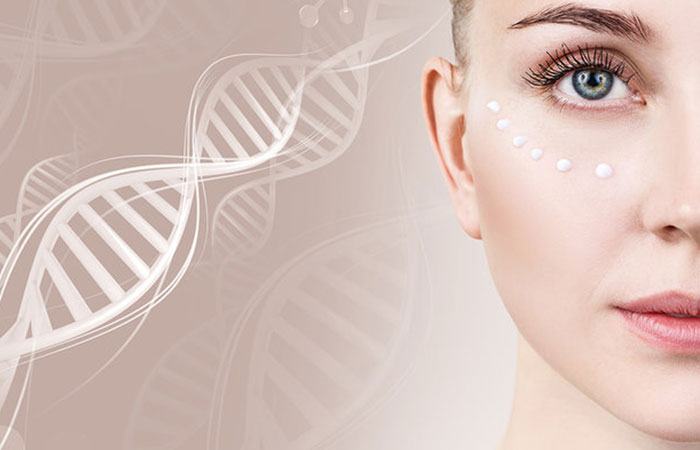
Collagen is a type of protein that is found in the skin, bones, tendons, and other connective tissues in the body. It helps to give structure to these tissues and also plays a role in maintaining their strength and elasticity. Foods that are high in collagen include bone broth, fish, eggs, and leafy greens. Consuming these foods, along with a balanced diet, can help to support collagen production in the body and promote healthy skin, nails, and joints.Below, we'll help you understand what collagen actually is and the role it plays in your body, so you can make the best nutrition decisions for you.
Collagen: What does it do to our body?
Collagen is a type of protein that makes up a significant portion of our body's connective tissues, including skin, tendons, ligaments, cartilage, and bones. It is also found in blood vessels and the gut. Collagen is a key component in the skin's structure, providing strength and elasticity. It helps to keep skin firm and smooth and also helps to repair and maintain skin's integrity. Collagen also plays a role in the health of joints, as it helps to provide cushioning and support. Additionally, collagen is important for the health of bones, as it helps to make them stronger and more dense.
As we age, the body's collagen production decreases, which can lead to wrinkles, sagging skin, and joint pain. This is why many people take collagen supplements as a way to improve the health and appearance of their skin and joints. Collagen supplements are typically taken in the form of powders or capsules and can be derived from a variety of sources, including fish, bovine, and chicken.
How do you know you have enough collagen?
There are also certain signs and symptoms that may indicate a deficiency in collagen. These include:
It's worth noting that as we age, our body's natural collagen production decreases. So, it's common for people to experience some of these signs of collagen deficiency as they get older. However, some medical conditions and lifestyle factors can also lead to a deficiency in collagen.
It's important to note that collagen supplements or topical products may not be suitable for everyone. Some individuals may have allergies or sensitivities to certain ingredients, and some may have medical conditions that make it unsafe for them to take collagen supplements. Therefore, it's always best to consult with a healthcare professional before taking any new supplements or topical products.
It's also important to keep in mind that there is currently limited scientific research on the effectiveness of collagen supplements for increasing collagen levels in the body. Collagen supplements are often composed of hydrolysed collagen, which is a form of collagen that has been broken down into smaller peptides for easier absorption. However, it's not certain how well the body can absorb these peptides and use them to rebuild collagen in the skin, bones, and connective tissues.
Dietary changes are a safer and more sustainable way to potentially increase collagen in the body. Eating a diet rich in vitamin C, which helps to boost collagen production, is one way to potentially increase collagen levels. Foods high in Vitamin C include oranges, kiwi, strawberries, papaya, bell peppers, spinach, and broccoli.
Another way is to consume collagen-rich foods such as bone broth, fish, and egg whites. These foods contain amino acids that are building blocks for collagen. Therefore, consuming these foods on a regular basis may help to increase collagen production in the body.
In summary, it's best to consult with a healthcare professional to determine if you have enough collagen, and to discuss the best ways to potentially increase collagen levels in the body.
Do you really need collagen supplements and skin treatments?
Collagen supplements and skin treatments are not necessary for everyone, as some people may naturally have enough collagen in their bodies or may not have any specific skin concerns. However, some people may benefit from using collagen supplements or skin treatments if they have specific skin concerns or if they want to promote overall skin health. It is always best to consult with a healthcare professional before starting any new supplement or treatment regimen.
Collagen is a protein found in the skin, bones, muscles, tendons, and other connective tissues in the body. As we age, our body's natural collagen production decreases, which can lead to wrinkles, fine lines, and a loss of skin elasticity. Some people may choose to use collagen supplements, which are typically made from fish, chicken, or bovine sources, in order to increase their collagen intake and promote skin health.
Skin treatments, such as facials, peels, and microdermabrasion, can also be beneficial for promoting healthy skin. These treatments can help to exfoliate dead skin cells, unclog pores, and stimulate collagen production. However, it's important to note that these treatments may not be suitable for all skin types and may cause irritation or even harm if not used properly.
It is always best to consult with a healthcare professional or a licensed esthetician before starting any new supplement or treatment regimen. They can help you determine the best course of action for your individual needs and concerns.
How can you produce more collagen naturally?
There are several ways to naturally increase collagen production in the body:
It's important to note that individual results may vary and it's always best to consult with a healthcare professional before making any changes to your diet or lifestyle.
Established in 2013, FamilyNeeds.net is connected to your lifestyle and everyday life. Publish reviews of your life, style, fashion and essentials.